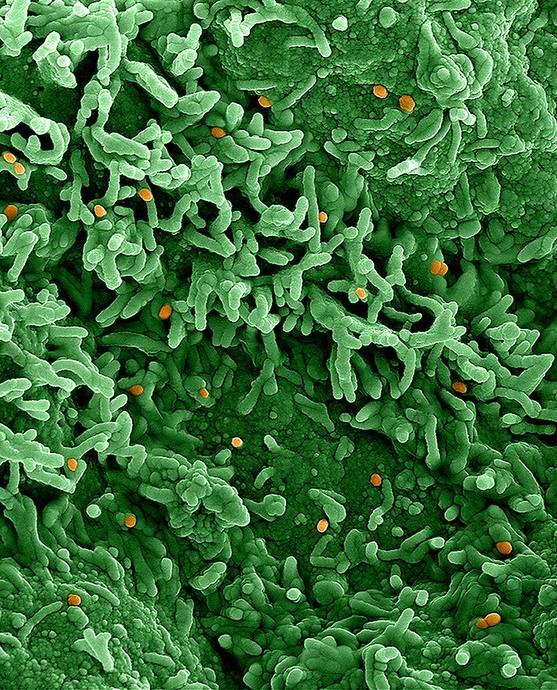A study on the use of antivirals in seven monkeypox patients in the United Kingdom suggests that the smallpox drug tecovirimat could shorten symptoms and contagiousness.
The authors said it is the first report on in-hospital and household transmission of monkeypox outside of Africa.
Monkeypox, a rare disease that typically features fever, skin lesions, and swollen lymph nodes, can lead to complications such as brain and lung inflammation and, less commonly, death. It is spread from animals to people via a bite, scratch, or meat and from people to people through direct contact (eg, body fluids, lesion material) or indirect means (eg, respiratory droplets or shared personal items).
This month, unusual cases and outbreaks of the smallpox relative, typically confined to central and western Africa, have been reported in countries such as the United States, the United Kingdom, Slovenia, the Czech Republic, and the United Arab Emirates. The study did not include any cases from this most recent outbreak.
Tecovirimat may hold promise
In the observational study, published yesterday in The Lancet Infectious Diseases, the National Health Service England High Consequence Infectious Diseases (Airborne) Network retrospectively studied patient charts for virologic findings and response to the off-label antivirals tecovirimat and brincidofovir in four men and three women diagnosed as having monkeypox in Liverpool and Newcastle, England, from Aug 15, 2018, to Sep 10, 2021.
Three patients acquired monkeypox in the United Kingdom, including a healthcare worker infected at work and a child and adult who were household contacts of a person infected in West Africa. All patients, who were young and had no underlying illnesses, were hospitalized owing to the risk of viral transmission rather than to the severity of disease.
Signs and symptoms included the presence of the virus in the blood, prolonged viral DNA in the upper respiratory tract, low mood likely related to isolation or perceived stigma, and, in one patient, a deep-tissue abscess that tested positive for the virus on polymerase chain reaction (PCR) testing. Five patients with prolonged PCR-positivity after the crusting of all lesions were isolated for 22 to 39 days.
The three patients treated with 200 milligrams (mg) oral once-weekly brincidofovir had to stop treatment after developing elevated liver enzymes, indicating liver inflammation or injury.
The patient given 200 mg of oral tecovirimat twice daily for 2 weeks had no adverse effects and shed viral DNA for only 10 days. The authors wrote, "The patient treated with tecovirimat had a shorter duration of symptoms and upper respiratory tract viral shedding than the other patients in the series."
One patient had a mild resurgence of monkeypox 6 weeks after hospital release. All patients had mild illnesses and full recoveries.
A challenging, resource-intensive disease
The authors cautioned that the sample size was very small but said the need for monkeypox treatments is urgent.
"Although optimum infection control and treatment strategies for this potentially dangerous pathogen are not established, our first-use data suggest brincidofovir has poor efficacy; however, prospective studies of tecovirimat in human monkeypox are warranted," they wrote.
"Monkeypox outbreaks will continue to occur in west and central Africa, and health-care workers around the world must remain vigilant to the possibility of monkeypox in travellers presenting with fever and rash," the researchers added.
In a Lancet news release, senior author Nicholas Price, PhD, of Guy's & St. Thomas' NHS Foundation Trust, said that the study and the recent monkeypox outbreaks underscore the importance of maintaining a network of centers to manage sporadic outbreaks of high-consequence diseases such as monkeypox.
"The cases we observed were challenging and resource-intensive to manage, even in the high-income setting of the UK," he wrote. "With international travel returning to pre-pandemic levels, public health officials and healthcare workers around the world must remain vigilant to the possibility of new cases of monkeypox."






















